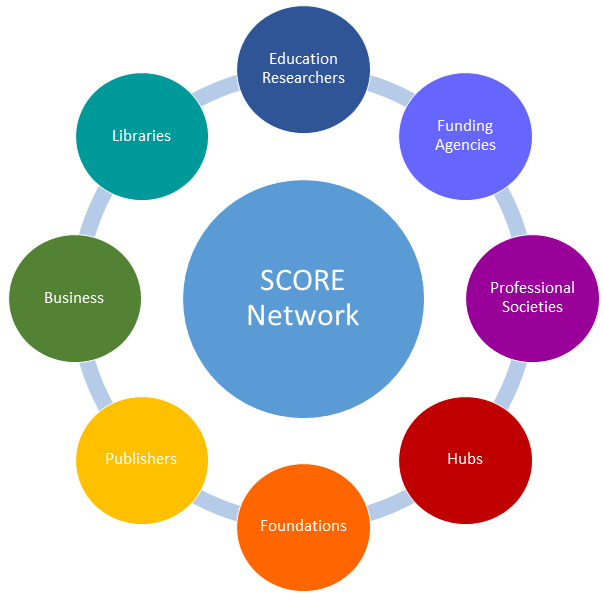Sustainability and Justice: Challenges and Opportunities for an Open STEM Education
Author(s): Carrie Diaz Eaton1, Kaitlin Bonner2, Karen Cangialosi3, Bryan Dewsbury4, Maggie Diamond-Stanic5, Jason Douma6, Michelle Smith7, Jeremy M Wojdak8, Robin Taylor9
1. Bates College and QUBES 2. St. John Fisher College 3. Keene State College 4. University of Rhode Island 5. Bates College 6. University of Sioux Falls 7. Cornell University 8. Radford University 9. RTRES Consulting
723 total view(s), 164 download(s)
SCORE Jan22 Draft.docx.pdf(PDF | 1 MB)
- License terms
Description
Open Educational Resources or OER are teaching materials that reside in the public domain and are available under an open license. While the creation of high quality materials and cyberinfrastructure to share these resources is important, OER are much more than static resource repositories. Vibrant OER communities function as collaboration hubs and often include librarians, instructional technologists, instructors, education researchers, funders, open source software developers, and college administrators. Together these individuals work as a community to respond to changes in the education landscape, support student learning impacts both in terms of cost savings and student retention, and solve issues related to broadly sharing open resources on the web. This essay provides general information about OER, describes communities developing OER for STEM (science, technology, engineering, and mathematics) education, and presents insights about sustainability challenges. The sustainability challenges are organized according to multiple dimensions: cultural and social, economic and financial, and technological and environmental. In addition, OER provide important opportunities to address and promote social justice and open and accessible education philosophies. Knowing more about the OER landscape, sustainability challenges, and educational justice opportunities can help instructors use and contribute to this growing movement to reshape the landscape of undergraduate education.
Notes
After revisions - less focus on the meeting and more emphasis on key ideas and outcomes.
Cite this work
Researchers should cite this work as follows:
- Carrie Diaz Eaton, Kaitlin Bonner, Karen Cangialosi, Bryan Dewsbury, Maggie Diamond-Stanic, Jason Douma, Michelle Smith, Jeremy M Wojdak, Taylor, R. (2022). Sustainability and Justice: Challenges and Opportunities for an Open STEM Education. Sustainability Challenges for Open Resources to promote an Equitable Undergraduate Biology Education (SCORE-UBE), (Version 2.0). QUBES Educational Resources. doi:10.25334/937V-SK47
